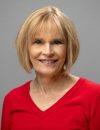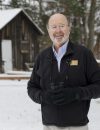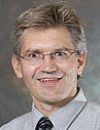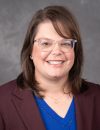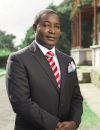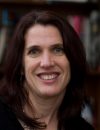UW In The News
-
black lives: In corporate reckoning on race, a skin-deep industry stands out
But beauty brands have historically enabled a “consistent erasure of people of color,” said Sami Schalk, a professor of gender and women’s studies at the University of Wisconsin-Madison. “Because black folks have not been in power, the beauty industry has always marginalized us and told us that our bodies and hair is not okay and needs to be changed.”
-
Automated fact-checking won’t stop the social media infodemic
Katy Culver, director of the Center for Journalism Ethics at the University of Wisconsin – Madison, said the economic incentives to boost users and engagement often inform how companies approach corporate social responsibility.
-
How to host a get-together as safely — and graciously — as possible
The number of guests should also depend on how much space you have. Monica Theis, a senior lecturer in the department of food science at the University of Wisconsin in Madison, notes that you need to keep social distancing even as people move around. “What’s the setup — can you really keep all guests six feet apart at all times?”
-
U.S. Insurers Use Lofty Estimates to Beat Back Coronavirus Claims
Only about 40% of small firms have business interruption coverage, according to the Insurance Information Institute, and most of the policies explicitly exclude pandemics, according to Tyler Leverty and Lawrence Powell, professors who specialize in insurance at the University of Wisconsin and the University of Alabama, respectively.
-
Fact check: N95 filters are not too large to stop COVID-19 particles
Health care precautions for COVID-19 are built around stopping the droplets, since “there’s not a lot of evidence for aerosol spread of COVID-19,” said Patrick Remington, a former CDC epidemiologist and director of the Preventive Medicine Residency Program at the University of Wisconsin-Madison.
-
Decade of data dents idea of a ‘female protective effect’
“I don’t think we’re at the stage yet where we can go all in on one possible explanation,” says Donna Werling, assistant professor of genetics at the University of Wisconsin-Madison, who was not involved in the study. Instead, the sex bias is likely due to a combination of many factors, which could include both those that protect girls and those that sensitize boys, among others, she says.
-
Diversity and inclusion a priority for Dr. Eric Wilcots, new dean of the UW College of Letters and Science
“We have a large group of students and a big faculty. In terms of research, in dollars we are second to the School of Medicine and Public Health. It’s the biggest college at UW-Madison,” Wilcots tells Madison365. “It’s an enormous and broad operation … a lot of responsibility.”
-
What If Working From Home Goes on … Forever?
“People start to synchronize their laughter and their facial expressions over time,” says Paula Niedenthal, a psychologist at the University of Wisconsin-Madison and an expert in the science of emotion. “And that’s really useful, because it helps us predict what’s coming next.” Constantly making micropredictions of our partner’s state — and having these turn out to be correct — is, it turns out, crucial to feeling connected.
-
Summer internships are canceled or going virtual
The novel coronavirus’s overall impact on internships and entry-level hiring could be huge. “I think this will end up being a pretty devastating event for college students,” said Matthew Hora, director of the Center for Research on College-Workforce Transitions at the University of Wisconsin-Madison.
-
Two Cats Are First U.S. Pets to Be Sickened With COVID-19
“Cats are still much more likely to get COVID-19 from you, rather than you get it from a cat,” researcher Keith Poulsen, director of the Wisconsin Veterinary Diagnostic Laboratory, said in a University of Wisconsin news release.
-
Insurance companies should cover remote therapy for mental illness
Psychology Professor Diane C. Gooding: Especially now, people should not be forced to choose between risking their mental health and risking their physical health to go to their mental health practitioner’s office. It is imperative that folks’ mental health treatment experience little to no disruption.
-
How K-Pop Fans Are Supporting Black Lives Matter
But by 2018, young Harry Styles fans were exerting pressure from the bottom-up: They started bringing Black Lives Matter flags to his concerts and urging him on Twitter to recognize the cause, wrote Allyson Gross, a PhD student at the University of Wisconsin at Madison, in a recent paper on how fans identify with celebrities and view them as representatives for their values. They were guiding him toward action, hoping “to mobilize his image for their own political purpose,” she argued. (The pressure campaign was largely successful.)
-
The Milky Way’s giant gas bubbles have been spotted in visible light
For the first time, scientists have observed visible light from the Fermi bubbles, enormous blobs of gas that sandwich the plane of the Milky Way galaxy. The newly spotted glow was emitted by hydrogen gas that was electrically charged, or ionized, within the bubbles. Astronomer Dhanesh Krishnarao of the University of Wisconsin–Madison and colleagues described the finding June 3 in a news conference at the American Astronomical Society virtual meeting and in a paper posted at arXiv.org on May 29.
-
Why Most Americans Support the Protests
Douglas McLeod, a journalism professor at the University of Wisconsin who studies the impact of news coverage on social movements, said people consumed a wider variety of information today, pointing in particular to social media. T
-
Protesting In A Pandemic: Gatherings Against Police Violence Strain Social Distancing, Public Health Measures
“Being outdoors might reduce your risk, but being in a protest where people are shouting and talking loudly — that might put more virus in the air. So, it’s really about staying physically distant from others and wearing a mask, so in case you’re sick and don’t know it, you reduce the chances of transmitting it to others,” said Patrick Remington, professor emeritus of public health at the University of Wisconsin-Madison School of Medicine and Public Health.
-
Pandemic, Recession, Unrest: 2020 and the Confluence of Crises
“The challenge this year is that we’re still in the middle of a pandemic,” says Barry Burden, a political science professor at the University of Wisconsin-Madison. “It’s pretty exceptional. So any stress on top of that seems magnified.”
-
How to Talk to Friends and Family About Racism and Injustice
It is productive to share your personal views, as long as you don’t say “you’re wrong” about alternatives. Patricia Devine, PhD, psychology professor and director of the Prejudice Lab at University of Wisconsin Madison, recommends statements like, “I want to share with you what my perspective is, how I understand these issues, and how it makes me feel.”
-
Fertility treatments allow for much older parents. Is this good for their offspring?
But the possibility that the parent will die before the child has embarked on life or even reached adulthood is a significant negative. When a parent gives birth at age 50 or above, the probability of death by the time that child turns 20 is 22 percent for a male parent and 14 percent for a female parent, according to a 2015 study from Julianne Zweifel, a psychologist at the University of Wisconsin School of Medicine and Public Health. That is more than double the probabilities for new parents at age 40.
-
How Do You Decide if Children Can Play Together Again?
If you are contemplating a play date, taking into account all these risks, you will need good communication with the other parents. “A start would be, hi, our kids have been asking about getting together, and as you know, this is a complicated conversation right now,” said Dr. Dipesh Navsaria, an associate professor of pediatrics at the University of Wisconsin School of Medicine and Public Health. A parent could continue, “I wanted to start with an open conversation, see where you are, tell you where I am, and see if it’s possible to send a consistent message to our kids.”
-
George Floyd protests: Extremists causing riots, Minn. officials say
Pamela Oliver, a sociology expert from the University of Wisconsin-Madison specializing in protests, said politicians sometimes blame outsiders for causing trouble as a way of pretending there’s no real problem within a community. That’s not what’s happening here, she said: Political leaders acknowledge Floyd’s death focused sharp attention on longstanding problems.
-
To prevent pandemics, bridging the human and animal health divide
Sandra Newbury, director of the Shelter Medicine Program at the University of Wisconsin-Madison, worked with the shelters to contain the virus. Thanks to the private donor, they were able to offer free testing and medical care for the adopted cats, eventually isolating hundreds that had been infected. “We were really aggressive in our efforts to not let it spread,” Newbury said. She believes identifying such a large number of infected animals and quarantining them allowed the authorities to eradicate the virus. According to Newbury, no positive tests have been reported since March 2017.
-
Live Coronavirus News and Updates
“It worries us,” said Dr. Nasia Safdar, the medical director for infection prevention at the University of Wisconsin Hospital in Madison. “We wonder if this is a trend in an unfavorable direction.”
-
Why Amy Cooper’s Use of ‘African-American’ Stung
Patrica G. Devine, a social psychologist at the University of Wisconsin who studies unintended bias, argues that there has been little rigorous evaluation of the training strategies deployed to combat it, and as a result we simply don’t know enough about what makes a difference.
-
Black Hole Paradoxes Reveal a Fundamental Link Between Energy and Order
But other researchers stress that these findings do not constitute an outright proof of the weak gravity conjecture. Gary Shiu, a theoretical physicist at the University of Wisconsin, Madison, said the belief that entropy should always increase when you take quantum gravity into account is “an intuition that some might have, but it’s not always true.”
-
As They Reopen, Small Retailers Grapple With New Expenses, Uncertainty
Tessa Conroy, an expert in small businesses and economic development at UW-Madison, said it’s a risky time for small businesses.
-
Wisconsinites Aren’t Staying Home But Researchers Hope Health Precautions Will Continue
Cell phone mobility data shows Wisconsin residents started traveling more during the first week of May. And that movement continued to increase after the Wisconsin Supreme Court struck down the state’s ’Safer at Home’ order on May 13, according to Oguzhan Alagoz, a University of Wisconsin-Madison engineering professor who specializes in modeling the spread of infectious diseases.
-
Weekly initial jobless claims hit 2.1 million
Around 40 percent of all workers could earn more while unemployed than by returning to their previous job, according to a recent study by the University of Wisconsin-Madison.
-
Why Parts Of Rural America Are Pushing Back On Coronavirus Restrictions
“This has become a rural versus urban issue,” said Kathy Cramer, a University of Wisconsin-Madison political scientist.Cramer recently wrote a book called The Politics of Resentment, focusing on her state’s urban-rural divide. Cramer said there’s general mistrust toward government regulations in rural America. And now coronavirus restrictions are being written that look to some like they were crafted only with city folks in mind.
-
No, this isn’t Europe’s ‘Hamiltonian moment’
One should never underestimate how small steps and “failing forward” can lead to major institutional change within the European Union. But it’s also wise not to overstate the significance of last week’s proposal. Perhaps the Merkel/Macron proposal will prove to be a watershed moment in European integration. But if the “Frugal Four” position is one pole of the bargaining among the 27 E.U. members and the Merkel/Macron proposal is the other, then Thomas Jefferson and James Madison have already won the political debate, and the eventual Compromise of 2020 will look absolutely nothing like that of 1790.
Mark Copelovitch is professor of political science and public affairs at the University of Wisconsin — Madison. He is the author (with David A. Singer) of “Banks on the Brink: Global Capital, Securities Markets, and the Political Roots of Financial Crises”
-
Hurricanes are growing stronger as climate warms, new NOAA study shows
“The main hurdle we have for finding trends is that the data are collected using the best technology at the time,” James Kossin, a NOAA scientist and University of Wisconsin-Madison professor, said in a statement. “Every year the data are a bit different than last year, each new satellite has new tools and captures data in different ways, so in the end we have a patchwork quilt of all the satellite data that have been woven together.”
- Newer stories
- Page 57 of 140
- Older stories
Featured Experts
Kathleen Glass: Food safety
Food is an integral part of Thanksgiving. And who doesn't love leftovers? But after how long should you leave those… More
Cecelia Klingele: Body-worn cameras by police
Madison Police Chief Shon Barnes is requesting that the city fund widespread use of body cameras for officers in the… More
Stanley Temple: Fall phenology
The days have finally started getting cooler and we all know winter awaits. Stanley Temple, an expert on birds, wildlife, endangered… More
Jonathan Temte: The seasonal flu shot
Family medicine professor Jonathan Temte is available to discuss this year's updated seasonal flu shot and flu prevention and control. More
Noelle LoConte: Pancreatic Cancer Awareness Month
Pancreatic cancer is one of the most difficult cancers to prevent, diagnose or treat. Earlier this month, music legend Quincy… More
Alvin Thomas: Movember and Men's Health Month
You might see more facial hair this month as Movember goes into full effect, drawing awareness toward men's health. Alvin… More
Dominique Brossard: Vaccine hesitancy
With a new administration poised to take power in January, a change in policy regarding vaccines may also be on the way.… More

